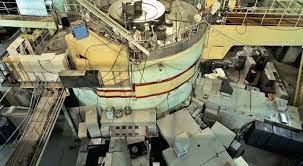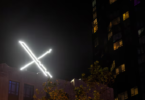Kigali (AFP): The Rwandan government signed an agreement on Tuesday with a Canadian-German startup to build an “experimental” nuclear reactor, saying it would help reduce use of fossil fuels in the African nation.
The reactor will be ready for testing in 2026, according to Dual Fluid Energy, the startup responsible for building the prototype.
“The new reactors can be used to produce electricity, hydrogen, and synthetic fuels at costs below those of fossil fuels,” the company’s CEO Goetz Ruprecht told reporters in Kigali.
Rwanda’s Minister of Infrastructure Ernest Nsabimana said the use of nuclear power would provide “a stable and reliable source of electricity, reducing dependence on fossil fuels and helping to meet growing energy demands.”
“Incorporating nuclear power into our energy mix will diversify the sources of energy, enhance energy security and reduce vulnerability to supply disruptions,” he added.
Rwanda previously signed an agreement in 2019 to set up nuclear plants in collaboration with Russia’s nuclear agency Rosatom, sparking furious opposition over perceived safety risks.
The president of the country’s main opposition Democratic Green Party of Rwanda, Frank Habineza, told AFP the deal between the government and Dual Fluid Energy was “dangerous”.
There “is no big difference between what Dual Fluid Energy wants to do (and) what Russia and the government of Rwanda agreed to do in 2019”, he said.
“There is no survey that can convince me that there is a place in this country where a nuclear reactor or a nuclear plant can be built without putting the people at risk.”
The Rwanda Atomic Energy Board and Dual Fluid Energy said their plans posed no threat to the population or the environment.
“Our test reactor is a small device with a low burn-up and therefore little radioactive material inside. For this reason too, it poses no threat to the environment,” they said in a joint statement.
“Even in an extreme scenario where the reactor and building were destroyed under massive force, little radioactive material would be released.”
South Africa is the only country in Africa to have a civil nuclear programme, with two reactors in service for more than 30 years. They produce 1,860 megawatts, or about four percent of the country’s total energy.







